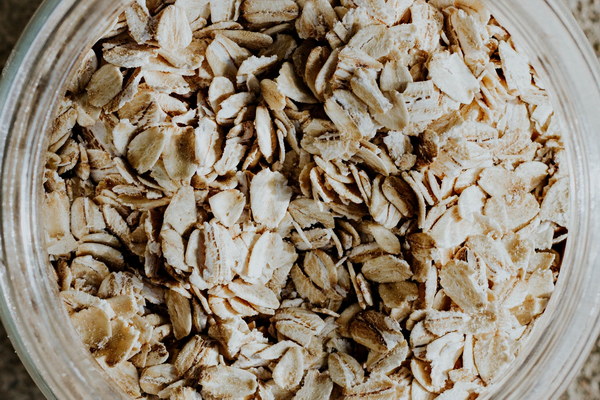Unlocking Health Traditional Chinese Medicine Nutrition Therapy and its Benefits
In the realm of holistic health and wellness, Traditional Chinese Medicine (TCM) has long been revered for its time-honored practices and natural remedies. One of the core principles of TCM is the concept of balance, which extends to diet and nutrition as well. Let's delve into the world of TCM and explore the various nutrition therapy methods that have stood the test of time.
The Philosophy of TCM Nutrition Therapy
TCM nutrition therapy is based on the understanding that the body is an interconnected system where each part depends on the others for optimal function. The goal is to maintain this balance by incorporating foods and herbs that can either correct imbalances or support the body's natural healing processes.
Key Components of TCM Nutrition Therapy
1. Food Therapy
Food therapy is a cornerstone of TCM nutrition. It involves using various foods and food combinations to address specific health concerns. Here are some common practices:
- Five Elements: TCM categorizes foods according to the five elements—wood, fire, earth, metal, and water—each associated with different organs and body systems. For example, leafy greens are considered to have a wood element and are beneficial for the liver.

- Four Temperaments: TCM also takes into account an individual's temperament, which is believed to be influenced by the balance of yin and yang energies. Foods that cool the body (yin) are recommended for those with a hot temperament, while those that warm the body (yang) are better suited for those with a cold temperament.
- Seasonal Eating: TCM emphasizes eating according to the seasons to support the body's natural rhythms. For instance, in the summer, cooling foods like watermelon and cucumbers are recommended, while in winter, warming foods like ginger and cinnamon can be beneficial.
2. Herbs and Spices
Herbs and spices play a vital role in TCM nutrition therapy. They are used to address specific imbalances and enhance the body's vitality. Some well-known TCM herbs include:
- Ginseng: Known for its energy-boosting properties, ginseng is used to tonify the body and improve overall vitality.
- Goji Berries: These berries are rich in antioxidants and are believed to support the immune system and improve vision.
- Peppermint: Peppermint is used for its calming effect on the digestive system and to alleviate symptoms of indigestion.
3. Dietary Restrictions
In TCM nutrition, certain foods may be avoided or limited based on an individual's specific constitution or condition. For example:
- Cold Foods: For those with a cold constitution, cold foods like ice cream and cold drinks may exacerbate their condition.
- Spicy Foods: For individuals with a hot constitution, spicy foods can exacerbate heat in the body and lead to inflammation.
Implementing TCM Nutrition Therapy in Daily Life
To incorporate TCM nutrition therapy into your daily routine, consider the following tips:
- Educate Yourself: Learn about the properties of different foods and how they can support your health. Resources such as TCM cookbooks and online articles can be helpful.
- Seek Professional Advice: A TCM practitioner can provide personalized dietary recommendations based on your specific constitution and health concerns.
- Experiment with Recipes: Try incorporating TCM-inspired recipes into your meals. For example, a simple ginger tea can be both warming and soothing to the digestive system.
- Mindful Eating: Pay attention to how your body reacts to different foods and adjust your diet accordingly. Mindful eating is key to understanding your body's needs.
In conclusion, TCM nutrition therapy offers a wealth of knowledge and practical methods for achieving and maintaining health through diet. By understanding the principles of balance and harmony, and by incorporating TCM nutrition practices into your daily life, you can unlock the benefits of this ancient wisdom and experience a greater sense of well-being.









